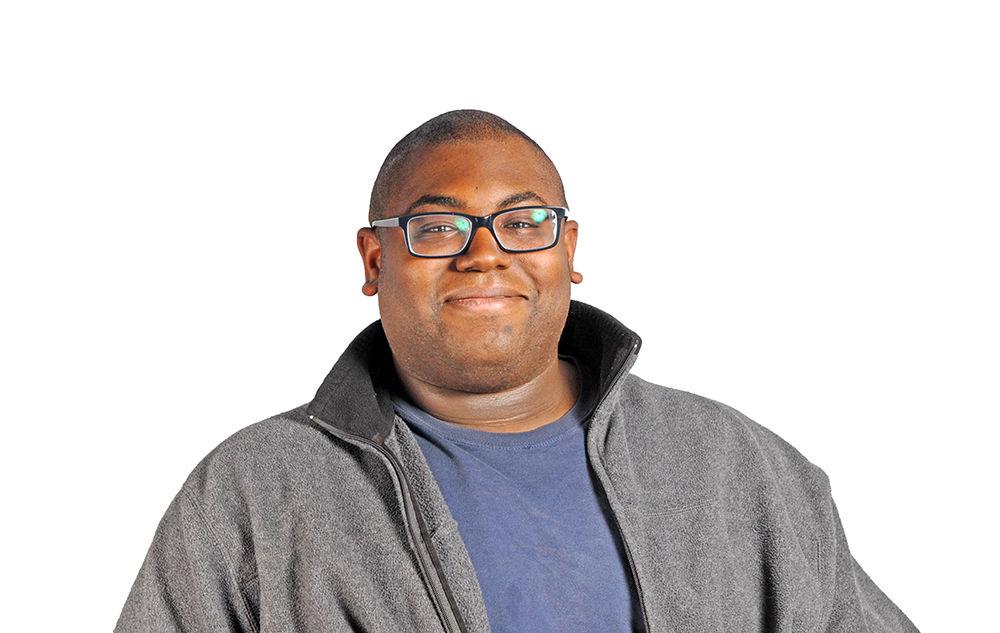
Glenn Wagstaff
Andre Corbett, a fourth year student studying communication.
“Pay the players.” These are three words associated with the NCAA as of late, words which have resonated with everyone from NBA legends down to the average fan of college ball. These words, and the stories related to them, have long been an issue in the discussion of profitability as it pertains to collegiate athletes versus what they are actually compensated — which is to say that they are not.
For the purpose of streamlining this issue, I focus on the basketball aspect of this, but players of any sport that put a dollar in the NCAA’s pocket should be financially rewarded for doing so.
That is not to say that some of the players have not been paid — in fact they have — but just not by the aforementioned organization. What sparked the resurgence of this topic was a report in February which reported that a number of top-tier current and former collegiate players are listed as accepting benefits — of the financial variety among other types. Some of the players listed include the 2017 No. 1 NBA draft pick Markelle Fultz, first-year Duke player Wendell Carter Jr. and, most notably, NC State’s own Dennis Smith Jr. who was drafted by the Dallas Mavericks as the ninth overall pick in last year’s draft class.
The superstar that we have come to revere and root for on the PNC floor as well as the NBA stage has allegedly taken money “under the table.” Reportedly, this was a payout to the tune of $73,500 with the idea that Smith would be signing with Andy Miller’s sports agency, ASM, which he declined to do.
Were his actions, or the actions of other players involved, justified? Well, the NCAA and the FBI would tell us that the answer is no. I, however, think that while they are not right, they were necessary.
Too often, we only think about the superficial when it comes to players being paid. In our heads, we see them driving fast cars, taking nice vacations and eating the finest foods that “high society” has to offer. We never take the time to consider why players would just go right into the NBA back in the day as opposed to taking some time to play in college. We do not consider that maybe they need to support the people around them as well as themselves.
Just look to 3-time NBA Champion, 4-time MVP and future Hall-of-Famer LeBron James who recently called the NCAA “corrupt” and listed his own rationale for joining the league as compared to a Division I institution. James made a point to note that he, like many other NBA players, grew up poor and that for him it was not about the options that he had to consider but rather a choice to go pro that he neededto make. The family factor was all that he had to take into account to know that the NBA was right for him.
James is not the only player calling out the NCAA. Former NBA player, and current ESPN analyst, Jalen Rose has proposed a much more radical approach: a boycott on the part of collegiate athletes. Rose, frustrated with the lack of progress on this issue, suggested that players simply refuse to take part in the NCAA tournament in order to impact revenue for the organization. Not to mention that it was just made public that the NCAA’s revenue hit the billion dollar mark for the first time in 2017 and will only continue to grow.
As for coaches, they can make anywhere from Mike Davis’ $250,000 Texas Southern salary and go as high as Duke coach Mike Krzyzewski’s which was listed at $8,982,325. I understand the distinction between the NCAA paying people and schools paying people but why can’t there be some coordination between the two? How are coaches allowed to profit so much off of this game, but not the players?
I am not suggesting that players be paid obscene amounts comparative to that of what professional players make. What I am saying is that they should be paid something. Why not pay college athletes a small sum and grow it for each year that they stay at the school? Why not allow them to at least take paid endorsement deals if neither the schools nor the NCAA are looking to pay them? This could range from small, local businesses all the way up to big corporations, but the point is that both parties could benefit substantially from this.
We cannot continue to make this an issue that only pops up every other year or so because things will only worsen. Or maybe they already have; we have seen several coaches fall, including Rick Pitino, the former head coach of Louisville, with the FBI still investigating the money being funneled to players. Either way, new options have to be explored as the NCAA is facing new competition in LaVar Ball and the NBA.
Ball intends to start a league for players looking to compete at a higher level after high school, with monthly payments ranging from $3,000 to $10,000 depending on the skill levels of those involved. On the other hand, the NBA is exploring ways to develop high school prospects before possibly introducing them to their G-League, also known as their developmental league, and then moving them up to the big show at age 19 or later.
At this crucial juncture, both the NCAA and colleges around the country are at risk of losing potential stars to these two new challengers. These players will continue to play ball no matter what, but the question is whether they will decide to do it on a bigger budget with an organization that is not a school.